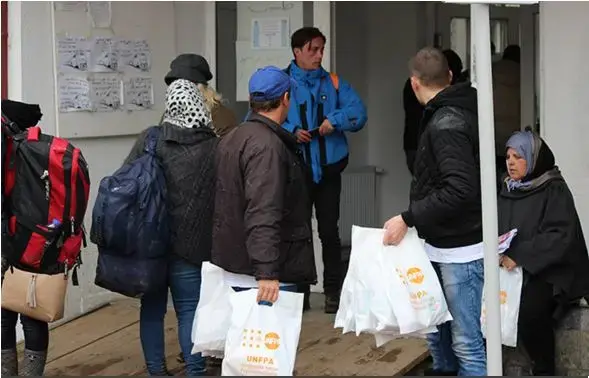ISTANBUL – Health ministry officials and civil society representatives from 19 countries in Eastern Europe and Central Asia developed action plans for introducing a “total market approach” to ensuring universal access to modern contraceptives and other reproductive health commodities at two meetings, in Sarajevo and Kyiv, in April.
The meetings, organized together with together with PATH, a global health organization, marked a major step towards establishing the total market approach in the region, as the ministry officials committed to finalizing and implementing the action plans.
The total market approach looks at what the public sector, commercial suppliers and non-governmental organizations can do to ensure a reliable supply of reproductive health commodities. It takes into account that not all population groups are able or willing to pay the full market price for such commodities, and foresees subsidies or free supplies for those who cannot afford them. This helps ensuring that the entire population has access to a wider range of affordable quality contraceptives, including marginalized or otherwise under-served groups.
Draženka Malicbegovic, Assistant Minister at the Ministry of Civil Affairs of Bosnia and Herzegovina, confirmed that the Bosnian government will take steps to introduce the total market approach, as this will contribute to achieving the goals set in the 2012 national sexual and reproductive health policy.
Olexandr Tolstanov, Deputy Health Minister of Ukraine, said: “Reproductive health, including access to family planning services, is at the top of Ukraine’s health care system reform agenda.” He added that the national reproductive health programme for the period until 2015 includes budgetary provision for the procurement of contraceptives for four defined vulnerable population groups.
Participants agreed that the introduction of the total market approach is doable in the countries of the region. “It will help us to systemize our efforts to shift to nationally owned reproductive health commodity security,” one ministry official said.
At the same time, participants stressed that more advocacy is needed, including from UN agencies such as UNFPA and WHO, to get high-level buy-in for the implementation of the action plans developed.
The use of modern contraceptive methods is alarmingly low in many countries of South-eastern Europe. In Albania, Bosnia and Herzegovina, the former Yugoslav Republic of Macedonia and Serbia the rate is below 20 percent, lower than the average for the world’s least developed countries.




